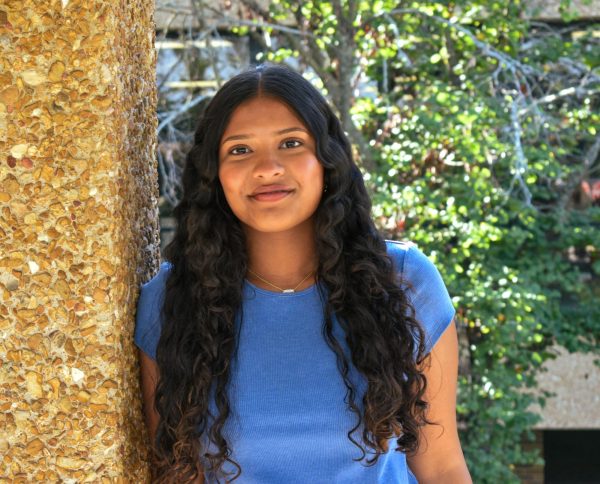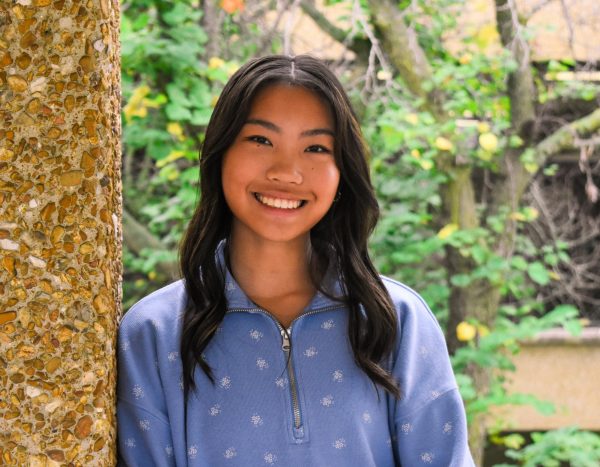Eight seniors recognized as 2025 National Merit Finalists
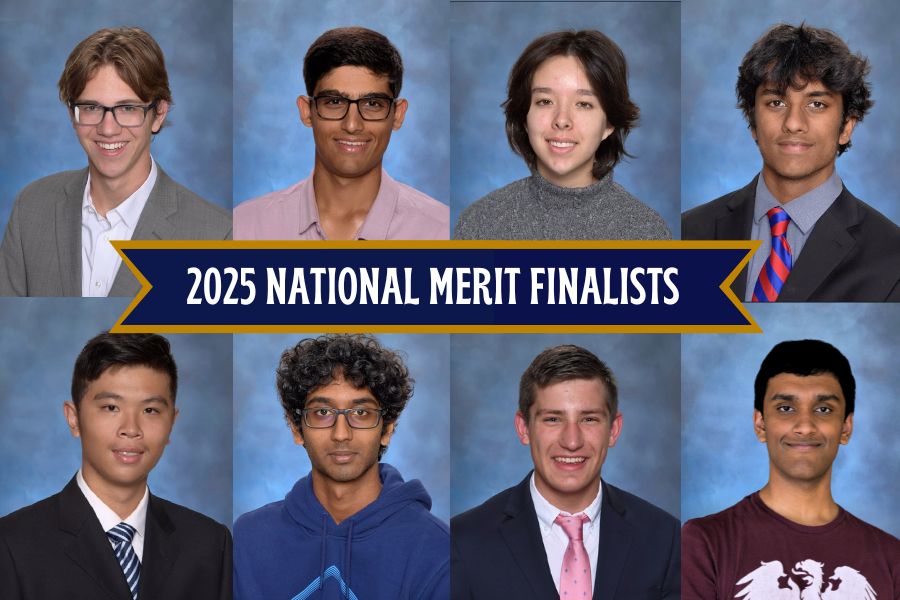
This year, West High upheld its history of success within the National Merit program as eight seniors advanced to the status of 2025 National Merit Finalists. Since 1955, the National Merit Scholarship Corporation has provided academic recognition for high school students. The nationwide competition is based on the Preliminary Scholastic Aptitude Test (PSAT), a standardized test administered in the students’ junior year of high school. The top 16,000 of the 50,000 highest scores on the test advance to the semifinalist status, after which they continue the application process to pursue the finalist status, and eventually, potentially earn one of the 2,500 National Merit $2500 Scholarships.
The process toward that end goal is extensive, requiring not only an excelling PSAT score, but also an online application, letter of recommendation, personal essay and confirmation of consistency in test performance through ACT or SAT test scores. In the past two decades, counselor Jennifer Wibbenmeyer has guided students through the process, learning and assisting with tips on what to focus on when pursuing the status of National Merit Finalist.
“Usually, the students that don’t move on [to the next round don’t] because there’s inconsistency either in their test-taking or their transcript,” Wibbenmeyer said. “Some kids are really great test takers, but then their transcript doesn’t necessarily back that up, so the most important thing is to show that consistency throughout your grades if you’re shooting for that National Merit recognition.”
Alongside academic achievement in the classroom and testing rooms, the path of applying to be a National Merit Finalist itself can be taxing, with several steps required to complete the application. Students attempting to move forward in the round must remain diligent and persistent throughout the process.
“I’m very proud of the fact that every student that I’ve worked with has really taken the process,” Wibenmeyer said. “It is a lot of work, once you’re designated a semifinalist, to apply to become a finalist. Every student has really put forth a lot of effort to make the timeline and deadlines that I’ve given them and make sure that their application is as perfect as it can be before we transmit it off.”
Despite its extensivity, the application process for National Merit Finalist has been completed by several West High students in the past with positive results. Wibbenmeyer credits part of the student success towards the support in the school’s staff environment.
“We have a really good track record of students that have gone on to finalist standing,” Wibbenmeyer said. “The caliber of students that we have speaks to the teachers, and that we have staff that continue to challenge kids to be as knowledgeable as possible.”
Ultimately, the academic success of these students does not come without its own course of effort and preparation. For incoming students and underclassmen attempting to achieve National Merit status in the future, Wibbenmeyer advises a balance between test preparation and maintaining academic proficiency at school.
“Continue to take challenging coursework and test prep,” Wibbenmeyer said. “The PSAT is a preliminary test, it’s one of the first tests that kids take and it’s a high-stakes test. The only way you get better at test-taking is by practice, practice, practice. There’s a component of knowing the material and taking the coursework that’s going to prepare you, but it’s also knowing those test-taking strategies and the format of the test and the timing. The combination of both of those is going to set kids up [for success] the most.”

What was your reaction to finding out you were a finalist?
It was really exciting. A bunch of my friends and I got called out of class. [We] didn’t know what we were called in for and all got to find out together, which was really fun. Being able to share that made it a much more important accomplishment to me and something that I treasure.
What did you do to prepare for the PSAT?
I was not aware that it was as important as it was, so I didn’t really prepare for the PSAT.
What did you write your essay about?
I wrote about a few different things. I wrote about activities I was involved in and experiences I’ve had.
Where do you plan on going to college? What do you plan to pursue?
I’m going to the University of Tulsa and I’m going to be majoring in economics there, which is something that Speech and Debate got me interested in because I’ve been doing a lot of different research on economic topics, reading a lot of economic literature and realized this is what I want to be doing. The reason I picked the University of Tulsa is actually tied into the National Merit honor, because if you are a semifinalist, they have a special [financial aid] package. They also have days that are only for people who are semifinalists, so I went to a couple of those and just really fell in love with the school. I got to meet a lot of the faculty and a lot of the professors there, and everybody had such a strong commitment to teaching and helping people grow. I was enchanted by it.
What advice do you have for students looking to achieve this next year?
You have to make it a priority to be a learner. A lot of people approach from the lens that the only thing that’s going to help you score better on a test is practicing your testing skills; but there’s such a wide degree of skills that are going to be called upon when you’re testing, in terms of the actual learning competencies being tested on and the critical thinking that you need to be engaging in, that is going to help you to develop a wide range of skills. So, instead of just focusing on practicing your test-taking skills — still do that — also make sure that the things that you are spending your time on are going to be things that help you learn in a variety of different ways.
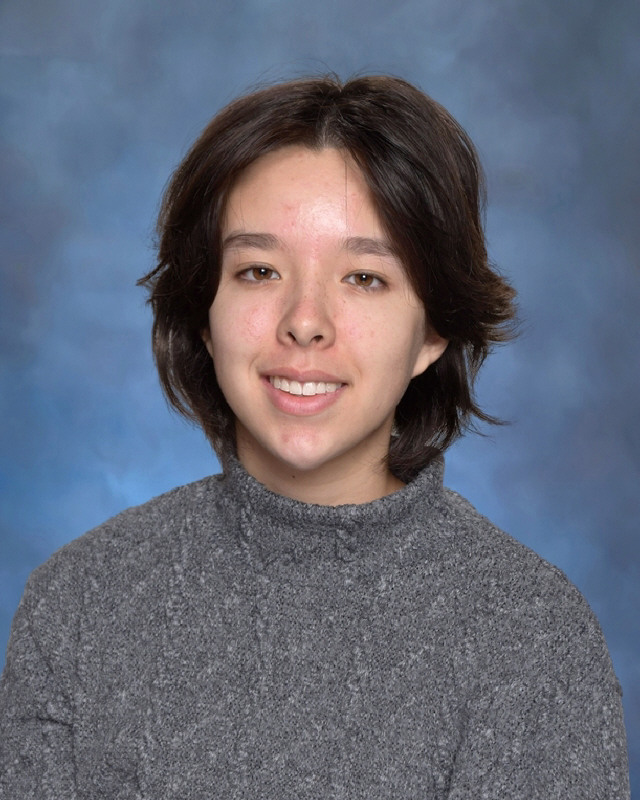
What was your reaction to finding out you were a finalist?
I was pretty happy. You get money for being finalists, [and] a little money is always nice. It also feels like getting a concrete payoff for trying to do well academically.
What did you do to prepare for the PSAT?
I actually didn’t prepare for the PSAT itself. I had taken the ACT a month earlier, and most of the content was the same, so it was just the preparation for the ACT that carried over.
What did you write your essay about?
For my essay, I reused my personal college essay about some of the [work] that I do with the Butterfly House and rekindling old passions. When I was a kid, I was really into animals and insects, and there was a point in the middle where I lost interest, but then I regained a lot of it later. I think a lot of the reason why [the essay] stood out is the more narrative style; I wanted to tell it more as a story than as a summary essay
Where do you plan on going to college? What do you plan to pursue?
Right now, I’m looking at attending the University of Florida for animal science. I want to go to veterinary school after.
What advice do you have for students looking to achieve this next year?
It’s a lot about timing. If you schedule your ACT to be the September ACT, you can really space your studying out during the summer, which makes it a lot easier and more palatable. It’s easier to organize your time.
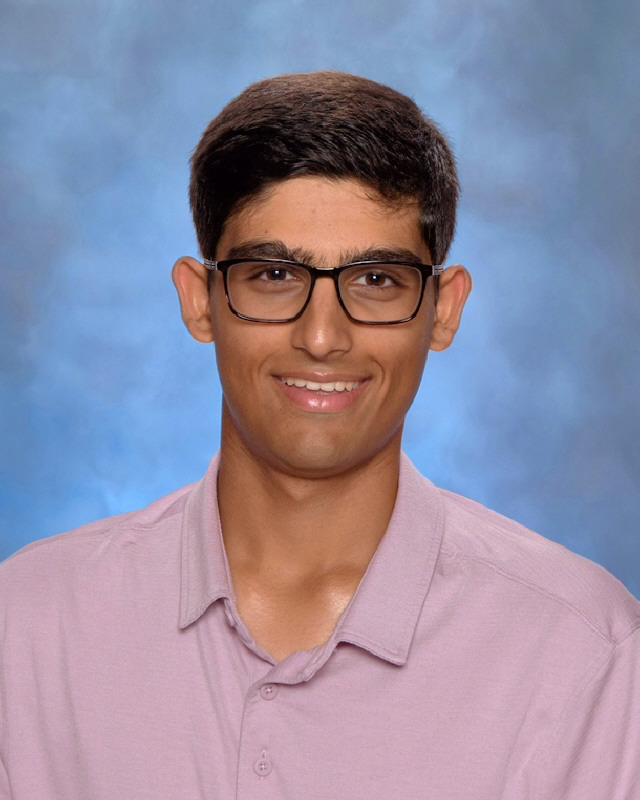
What was your reaction to finding out you were a finalist?
It was a great feeling. I was pretty excited. Mizzou has this great scholarship program [where] you don’t have to pay anything if you can get National Merit Semifinalist or Finalist, so that was exciting to know that I had that in my back pocket.
What did you do to prepare for the PSAT?
[I] just did a bunch of practice problems.
What did you write your essay about?
[My essay] was an old recycled draft of my Common App essay, and it was a mismatch of something from my childhood that I was trying to connect it to my current aspirations.
Where do you plan on going to college? What do you plan to pursue?
Probably Georgia Tech, but if I get off the waitlist at the University of Michigan, then I’ll probably go there. I plan to pursue either pure or applied mathematics. I’ve always liked math, and I think it encourages abstract thinking, especially at the undergraduate and graduate school levels. It’s not necessarily formulaic like it is in high school, and I like that freedom.
What advice do you have for students looking to achieve this next year?
Honestly, just practice your butt off. Do a bunch of practice problems. The essay and application portion really isn’t too big of a deal, but you could do some volunteering — that’s always good to put on your application. Mostly just make sure you do well on the test: do practice SATs and use Khan Academy.
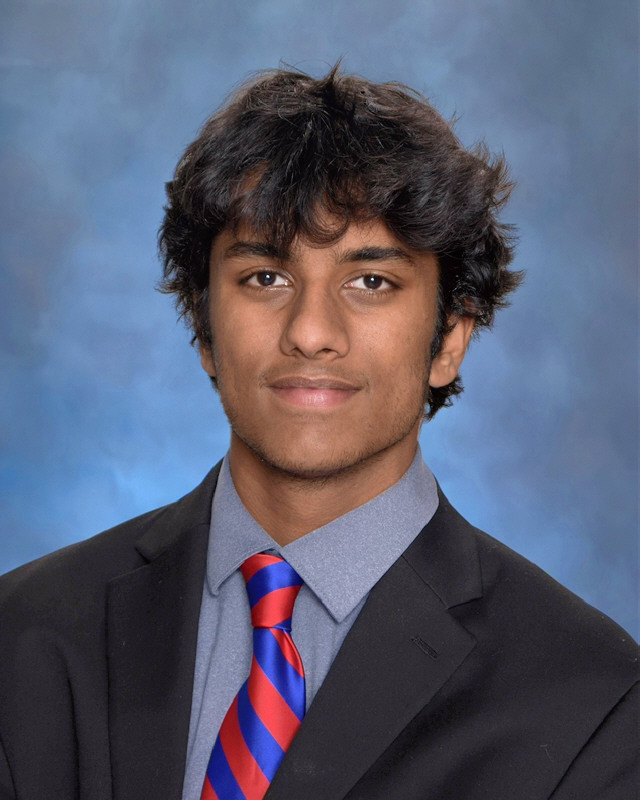
What was your reaction to finding out you were a finalist?
I was relieved and excited that my hard work and studying had paid off.
What did you do to prepare for the PSAT?
I didn’t really study for the PSAT, but I did a lot of ACT studying the summer before, and it helped me with test-taking skills.
What did you write your essay about?
I wrote about returning to India in 2019. It was my first time going in 12 years, and it was a cultural shock. I talked about the struggle of staying connected with your culture but also the importance of bridging between cultures.
Where do you plan on going to college? What do you plan to pursue?
I’m not sure where I’m going yet. I plan to study medicine. My mom is a doctor and, from a young age, I’ve been exposed to medicine through her. I’ve never had to visit a doctor and never needed a pediatrician because my mom was there. That inspired me. My sister is also currently in medical school, so I’ve been even more exposed to learning about medicine [through her].
What advice do you have for students looking to achieve this next year?
I would say the best advice is to be confident in yourself and to get a lot of sleep. With tests in general, the easiest and most common state is when you’re tired, so you overlook things. Just be confident in yourself. Don’t second guess yourself and go with your first instinct.
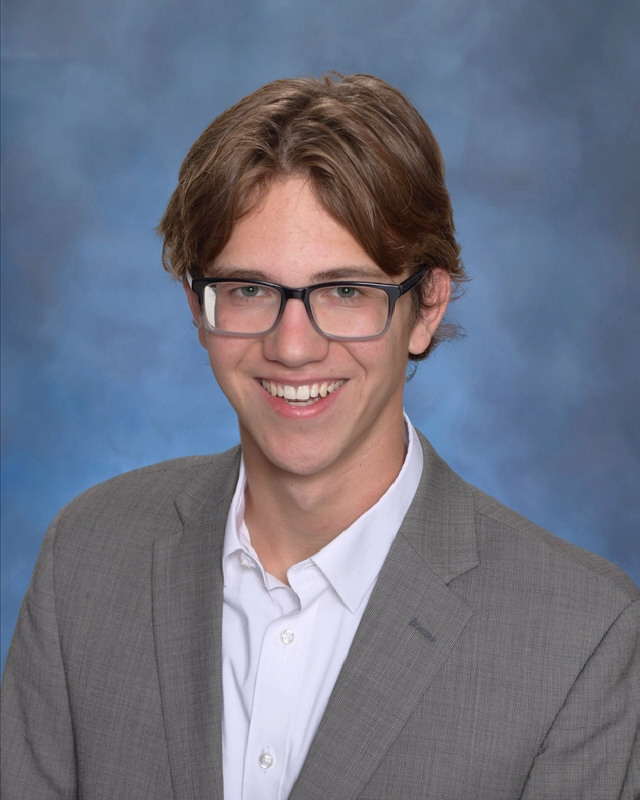
What was your reaction to finding out you were a finalist?
I was super surprised.
What experiences do you think helped you achieve this award?
I’m pretty good at test-taking.
What did you do to prepare for the PSAT?
I don’t think I prepared for the PSAT, but I’m very chill with tests, so I just went in and had fun.
What did you write your essay about?
I wrote my National Merit essay about ways I’ve challenged myself throughout high school, and how I’ve grown through those experiences. I cut down my college application essay to fit the National Merit requirements.
Where do you plan on going to college? What do you plan to pursue?
I’m going to Missouri S&T to do materials engineering because there’s a lot of progress being made in advanced materials.
What advice do you have for students looking to achieve this next year?
Don’t stress about it. Study your math.
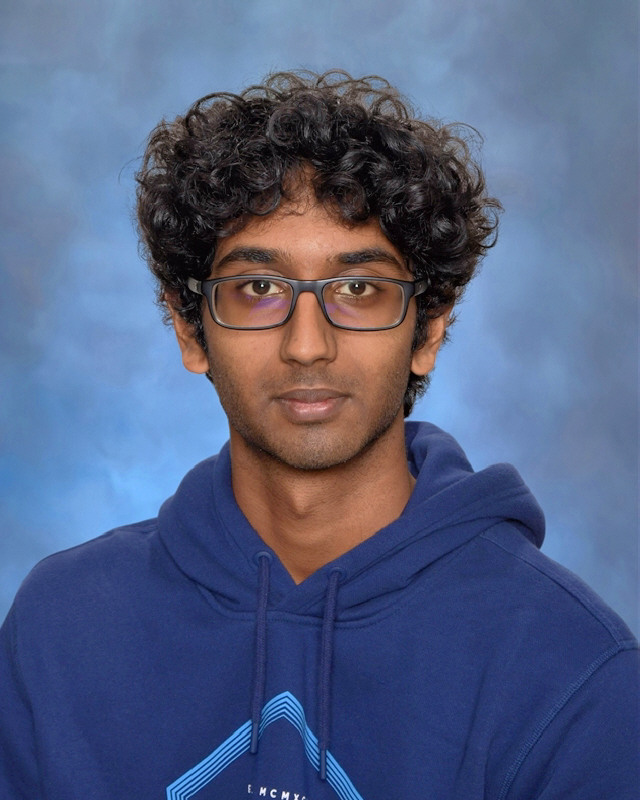
What was your reaction to finding out you were a finalist?
I was surprised and excited.
What did you do to prepare for the PSAT?
I focused on doing practice tests.
What did you write your essay about?
I wrote about chess because I’ve been playing for over a decade. The progression had a great impact on me, personality-wise and with life skills in general.
Where do you plan on going to college? What do you plan to pursue?
I’m not sure where I’m gonna go yet, but I like artificial intelligence and computer science. With the way that the world’s moving with ChatGPT, Dall-E and online artificial intelligence interfaces, getting involved with that feels exciting. I also have an interest in neuroscience on the side, and might want to do a combination of both.
What advice do you have for students looking to achieve this next year?
Don’t slack off until the last day like I did. I took three practice tests the day before, and I would say I was lucky because I was right on the edge. I got a score of 215 on the PSAT and [the requirement for] passing [to the semifinalist round] was 215.

What was your reaction to finding out you were a finalist?
It was really good. Scholarship money is always nice. Getting selected for semi-finals was the most difficult thing because a lot of semifinalists get chosen for finalists. But both of those selections were really nice.
What did you do to prepare for the PSAT?
For me, it was just doing a lot of practice tests [so] you get more of a feel for how the tests work. Also, just study a lot in general as you would for a test.
What did you write your essay about?
I wrote my essay about my father’s diagnosis with and recovery from Guillain-Barré syndrome, a disease that caused nearly full paralysis, and how my family and I dealt with and grew from it. I think that it stood out because it showed my personal growth as a result of adversity.
Where do you plan on going to college? What do you plan to pursue?
Currently, I am between the University of Chicago and the University of Texas, Austin. Those are my two best acceptances. No matter where I go, I plan on studying computer science for my major, and I’m thinking about doing a minor in statistics or business or chemistry. I’ve liked computer science pretty much since I was a kid. I’m very familiar with it and I like solving problems with algorithms.
What advice do you have for students looking to achieve this next year?
Practice, practice, practice. If you want to be a finalist, the first step is being [a] semifinalist and the way to do that is to do well in your PSAT. Also, I can’t exactly tell someone to have a good story to write about, but working on your creative writing skills can also be good if you’re trying to make an impactful essay.
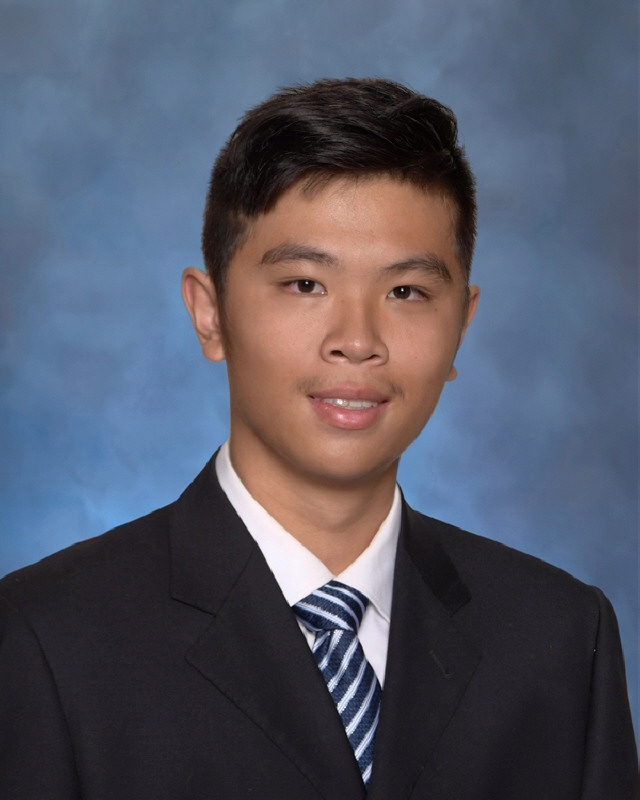
What was your reaction to finding out you were a finalist?
I wasn’t too surprised just because a lot of the semifinalists become finalists.
What did you do to prepare for the PSAT?
I took the 10th-grade practice test that the school gave us. I think I did pretty well on that, so I just decided I didn’t need to study.
What did you write your essay about?
I actually wrote my essay about taking a walk through my neighborhood and reliving my childhood memories. I felt like that was really important to me and my life growing up and I thought that was a really personal touch.
Where do you plan on going to college? What do you plan to pursue?
I’ve committed to the University of Illinois, Urbana-Champaign [and] I’m going to be studying statistics and computer science. I’m a pretty analytical person. I really like math and especially AP Statistics, and I highly recommend that course for upcoming students; it inspired my love for statistics.
What advice do you have for students looking to achieve this next year?
The number one thing is to pay attention in your class, especially math classes. There [are] [also] some great test resources out there like ACT [and] Khan Academy. Definitely get the official ACT practice book; I’ve heard some friends have some great results from that too.
-
![Smiling in a sea of Longhorns, Fox 2 reporter Ty Hawkins joins junior Darren Young during the morning Oct. 3 pep rally. The last time West was featured in this segment was 2011. “[I hope people see this and think] if you come to [Parkway] West, you will have the time of your life because there are so many fun activities to do that make it feel like you belong here. I was surprised so many people attended, but it was a lot of fun,” Young said.](https://pwestpathfinder.com/wp-content/uploads/2025/10/Edited2-1200x798.jpg) NewsRise and shine
NewsRise and shine -
![West High seniors and families listen as a representative of The Scholarship Foundation of St. Louis, Teresa Steinkamp, leads a Free Application for Federal Student Aid (FAFSA) workshop. This session, held in the library, provided guidance on financial aid, scholarships and student loan options. “This event is very beneficial for any seniors who are applying to or considering applying to colleges after high school [because] the cost of college is on the rise for seniors and parents,” college and career counselor Chris Lorenz said.](https://pwestpathfinder.com/wp-content/uploads/2025/09/DSC_4478-1200x778.jpg) NewsFrom questions to clarity: Seniors and parents attend FAFSA session
NewsFrom questions to clarity: Seniors and parents attend FAFSA session -
![Senior Kamori Berry walks across the field during halftime at the Homecoming football game on Sept. 12. During the pep assembly earlier that day, she was pronounced Homecoming Queen. “I thought it was nice that the crowd [started] cheering right away. I know [my friends] were really excited for me, and my family was happy because typically non-white people don't win,” Berry said.](https://pwestpathfinder.com/wp-content/uploads/2025/09/DSC7046-Enhanced-NR-1200x798.jpg) NewsGolden traditions
NewsGolden traditions -
 NewsPowder Puff, Powder Play
NewsPowder Puff, Powder Play -
 NewsVoices of the herd
NewsVoices of the herd -
 NewsCrowned: A look at your 2025 Prom King and Queen
NewsCrowned: A look at your 2025 Prom King and Queen -
![Pitching the ball on Apr. 14, senior Henry Wild and his team play against Belleville East. Wild was named scholar athlete of the year by St. Louis Post-Dispatch after maintaining a high cumulative GPA and staying involved with athletics for all of high school. “It’s an amazing honor. I feel very blessed to have the opportunity to represent my school [and] what [it] stands for,” Wild said.](https://pwestpathfinder.com/wp-content/uploads/2025/05/unnamed-6-1200x714.jpg) NewsDriven to excel
NewsDriven to excel -
![The Glory of Missouri award recipients stand with their certificates after finding out which virtue they were chosen to represent. When discovering their virtues, some recipients were met with contented confirmation, while others, complete surprise. “I was not at all surprised to get Truth. I discussed that with some of the other people who were getting the awards as well, and that came up as something I might get. Being in journalism, [Fellowship of Christian Athletes and] Speech and Debate, there's a culture of really caring about truth as a principle that I've tried to contribute to as well. I was very glad; [Truth] was a great one to get,” senior Will Gonsior said.](https://pwestpathfinder.com/wp-content/uploads/2025/04/Group-Glory-of-Missouri.jpg) NewsBringing glory to Missouri
NewsBringing glory to Missouri -
 NewsBack with a splash
NewsBack with a splash -
![Standing in Lambert Airport, French students smile for a photo before their flight. On March 10, the group of students began their 12-day trip to France, accompanied by French teacher Blair Hopkins and Spanish teacher Dominique Navarro. “The trip went smoothly. I think everybody enjoyed all three parts of it: Paris, Nice and the family home stay. The feedback I’ve gotten from all [of] the students has been positive, including several people already trying to plan a trip back to France,” Hopkins said.](https://pwestpathfinder.com/wp-content/uploads/2025/04/IMG_8146-1200x900.jpg) NewsA très bon voyage
NewsA très bon voyage
